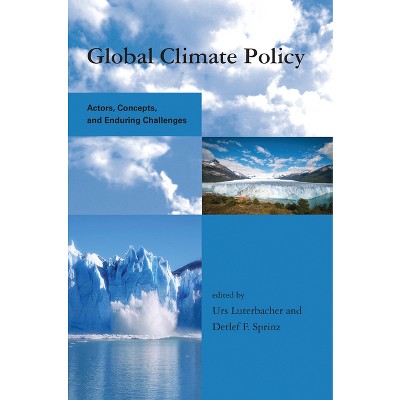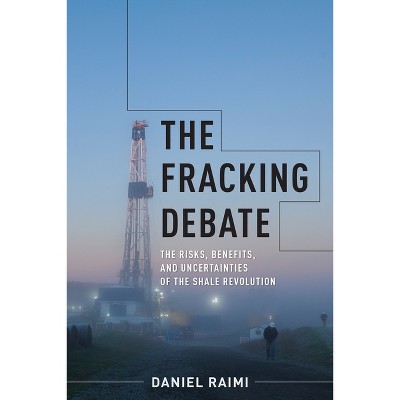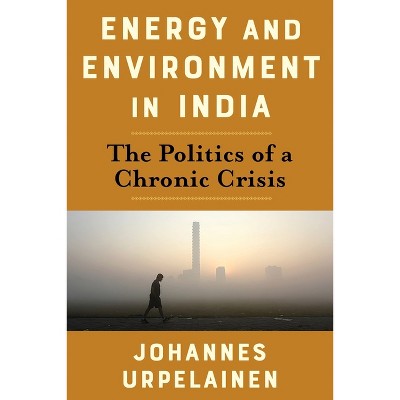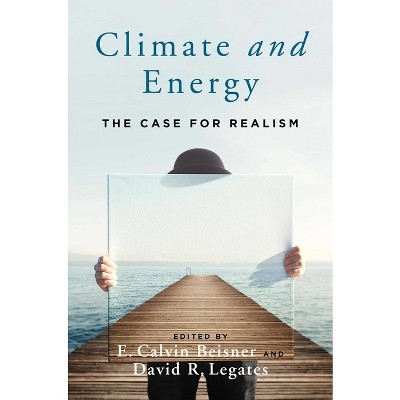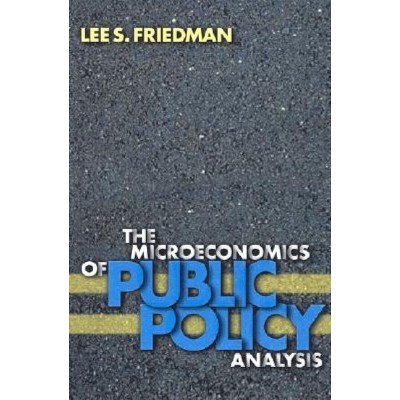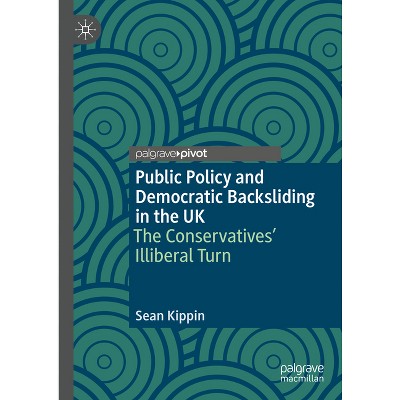Sponsored

Climate of Contempt - (Center on Global Energy Policy) by David Spence
$28.00
In Stock
Eligible for registries and wish lists
Sponsored
About this item
Highlights
- Winner, 2025 Robert W. Hamilton Book Award, Office of the Vice President for Research, The University of Texas at Austin Why is the United States struggling to enact policies to reduce carbon emissions?
- About the Author: David B. Spence is the Rex G. Baker Chair in Natural Resources Law in the School of Law and professor of business, government, and society in the McCombs School of Business at the University of Texas at Austin, where he teaches courses in energy and environmental regulation.
- 400 Pages
- Political Science, Public Policy
- Series Name: Center on Global Energy Policy
Description
About the Book
Climate of Contempt offers a voter-centric, bottom-up explanation of national climate and energy politics, one that pinpoints bitter partisanship as the key impediment to transitioning to a net zero carbon future.Book Synopsis
Winner, 2025 Robert W. Hamilton Book Award, Office of the Vice President for Research, The University of Texas at Austin
Why is the United States struggling to enact policies to reduce carbon emissions? Conventional wisdom holds that the wealthy and powerful are to blame, as the oligarchs and corporations that wield disproportionate sway over politicians prioritize their short-term financial interests over the climate's long-term health. David B. Spence argues that this top-down narrative misses a more important culprit--with critical consequences for the energy transition. Climate of Contempt offers a voter-centric, bottom-up explanation of national climate and energy politics, one that pinpoints bitter partisanship as the key impediment to transitioning to a net zero carbon future. Members of Congress respond to voters whose animosity toward the opposing party makes compromise politically risky. The most powerful driver of polarization, in turn, is the mixture of ideology and social media that constitutes today's information environment, which amplifies anger, spreads half truths and falsehoods, and sows division, distorting voters' understandings of the energy transition and their fellow citizens. Spence explores the effects of polarization, partisanship, and propaganda on energy policy and considers how to build a broader climate coalition. He contends that cooperation on this crucial issue is still possible, but it will require sustained person-to-person engagement across ideological and partisan boundaries to foster a more productive dialogue. Providing a timely and incisive understanding of the politics of the energy transition, Climate of Contempt suggests new paths forward and offers hope for a net-zero future.Review Quotes
Climate of Contempt is a timely book that will help analysts, policy makers, climate advocates, project developers, energy enthusiasts, and historians make sense of this inflection point in the energy transition. Spence brings together smart insights, keen observations, and rigorous detail in an easy-to-read format. Recommended for anyone who cares about energy and the future of the world.--Michael E. Webber, author of Power Trip: The Story of Energy
David B. Spence's urgent book comes at just the right time as we gear up for another contested election season and as we witness almost daily reminders of the accelerating climate crisis. Based on years of research and a deeply felt commitment to reasoned debate, Spence takes on the number one problem facing climate action: politics and polarization. In clear and compelling prose, backed up by detailed analysis, Spence shows us how we got to our current state and where we might look for resources to get beyond the tribalism and contempt that mark so much of contemporary climate politics. Although Spence has no illusions about the challenges we face in trying to build a more respectful politics, this is ultimately a hopeful book that recognizes the redemptive power of having authentic conversations across difference. It deserves to be widely read.--William Boyd, author of The Slain Wood: Papermaking and Its Environmental Consequences in the American South
About the Author
David B. Spence is the Rex G. Baker Chair in Natural Resources Law in the School of Law and professor of business, government, and society in the McCombs School of Business at the University of Texas at Austin, where he teaches courses in energy and environmental regulation. He is a coauthor of a leading casebook, Energy, Economics, and the Environment.Dimensions (Overall): 8.9 Inches (H) x 5.9 Inches (W) x .9 Inches (D)
Weight: 1.2 Pounds
Suggested Age: 22 Years and Up
Number of Pages: 400
Series Title: Center on Global Energy Policy
Genre: Political Science
Sub-Genre: Public Policy
Publisher: Columbia University Press
Theme: Energy Policy
Format: Paperback
Author: David Spence
Language: English
Street Date: August 6, 2024
TCIN: 91229312
UPC: 9780231217088
Item Number (DPCI): 247-52-0507
Origin: Made in the USA or Imported
If the item details aren’t accurate or complete, we want to know about it.
Shipping details
Estimated ship dimensions: 0.9 inches length x 5.9 inches width x 8.9 inches height
Estimated ship weight: 1.2 pounds
We regret that this item cannot be shipped to PO Boxes.
This item cannot be shipped to the following locations: American Samoa (see also separate entry under AS), Guam (see also separate entry under GU), Northern Mariana Islands, Puerto Rico (see also separate entry under PR), United States Minor Outlying Islands, Virgin Islands, U.S., APO/FPO
Return details
This item can be returned to any Target store or Target.com.
This item must be returned within 90 days of the date it was purchased in store, shipped, delivered by a Shipt shopper, or made ready for pickup.
See the return policy for complete information.






